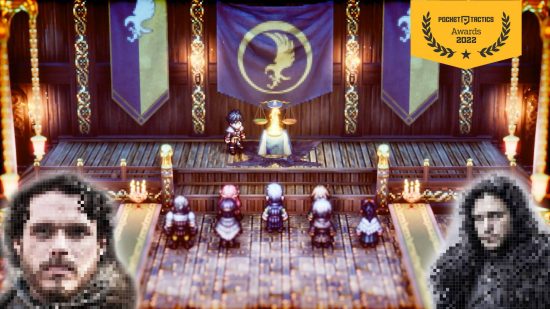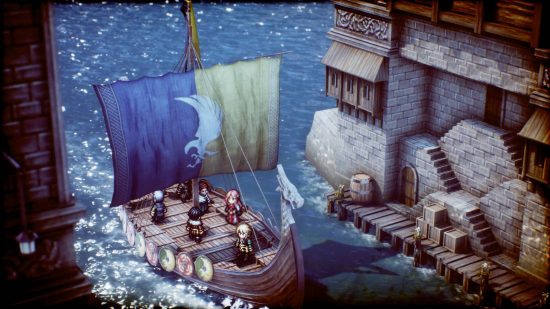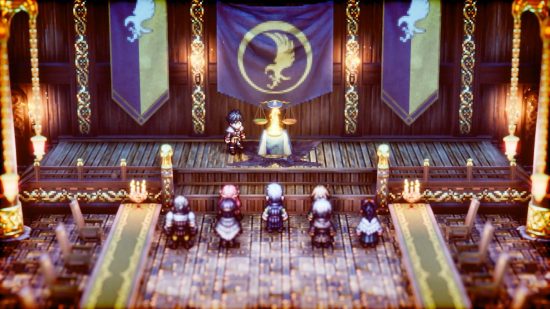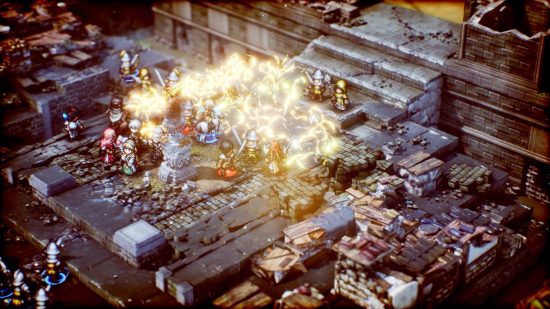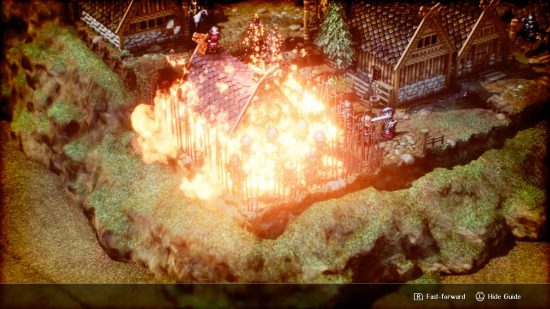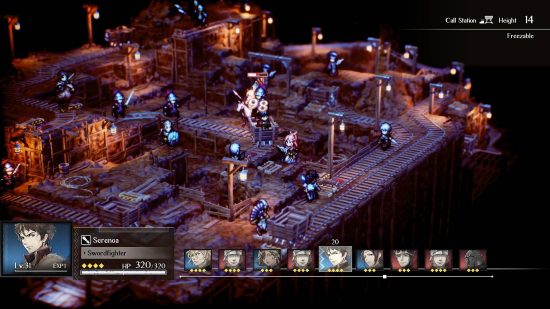While formerly something of a Wild West, where only quality titles like Aladdin or Mickey Mouse’s Castle of Illusion broke through, the world of licensed video games is currently on the up. Nowadays, it seems a good chunk of great games take influence from an existing media IP. We’ve had great games based on the Walking Dead, South Park, and plenty of anime properties like Dragon Ball Z. Well, unless you’ve been living north of The Wall, you might know about a little TV show called Game of Thrones. And for me personally, no game has done it justice yet.
A dark fantasy series that mixes political intrigue with deep characters, and a brutal approach to life and death, GoT gripped the nation for years, and I loved every second of it (well, nearly every second). It’s a shame we only ever got a couple of mobile games and a Telltale interactive narrative title to show for it. I’m also a huge fan of RPG games and the prospect of a sinister, sprawling videogame which encompasses the political aspect of the show balanced with life-and-death battles. Well, it would be a dream come true, right?
Enter Triangle Strategy, a strategy RPG from Team Asano of Square Enix. A tale of warring nations battling it out over resources, political prestige, and global power. Yeah, it sounds like a lot, but this is everything I want in a videogame, and I’m here to tell you why it’s also the Game of Thrones videogame of your dreams.
Triangle Strategy is one of the best games this year, and you can read all the reasons I love it in my Triangle Strategy review. An RPG with strategy elements, you control several characters in turn-based battles. Set in a grid-based environment where attacks utilise the resources around you, characters use swords, axes, arrows, magic and even the odd giant hawk to reap huge rewards.
So RPG turn-based battles and magical abilities have all been done before. The difference here is that while you play as Serenoa, the head of House Wolffort, your actions both in and out of combat affect your choices down the line. You see, you travel with a caravan of party members, and many of your choices, both in towns and in battle, affect the conviction of your party at large. When it comes time to make big decisions (where to go, who to save, and some with even bigger consequences), everyone gets a vote, and your actions help shape what your party decides.
When I say all of your actions, I mean it. Your conviction is affected by the people you save or kill in battle, and even how brutal you are when killing people. You can shape it by the people you speak to, and the amount of money you spend, the items you use, and even the number of battles you take part in. Split into liberty, morality, and utility, this far-reaching mechanic shapes the outcome of your story, and it’s the secret sauce that makes everything so addictive in Triangle Strategy.
The choices you have to make are really tough, and the way characters react to these difficult situations is genuinely fascinating. Rich dialogue and strong character building help convey the reasons behind each choice, and it’s this deep political reasoning and the slow revelation of the consequences that make it so Game of Thrones…
Ned Stark made well-intentioned but ultimately naive choices, and they (spoilers) cost him his head. In Triangle Strategy, Serenoa must live with the weight of his actions, and seeing the consequences of each and every choice you make along the way is a deeply gratifying and occasionally heartbreaking mechanic that few games successfully convey.
Don’t get me wrong, some games do feature a morality system. But while titles like Infamous use a simple ‘good or evil’ barometer, that ultimately unlocks some extra powers, Triangle Strategy ties Serenoa’s conviction to every element of the world. Plus, things aren’t so black and white. Serenoa is always trying to be good. There isn’t a single evil option in the game. Instead, you have to choose where to make concessions, who or what to sacrifice, and who needs your help the most.
I’m sure it’s no accident that House Wolffort in Triangle Strategy is reminiscent of House Stark, and Serenoa himself is a good facsimile for either poor young Rob Stark or Jon Snow. Men pushed into leadership at a young age, who must choose between those they love, and doing what’s best for the many who rely on them. Heavy is the crown, and no matter which of the many endings of Triangle Strategy you end up with, you pay a price to reach it.
There’s one particular element of Triangle Strategy that breaks my heart about halfway through the game. Without giving things away, you’re in a battle that seems completely unwinnable. But one of your party members suggests a way to win that would wipe out multiple enemy forces, at great cost. This is the moment I fell completely in love with Triangle Strategy and the moment I keep coming back to when I think of my favourite gaming moments of the year. A gut-wrenching choice, and a decision where there are no winners, just a battle to be won.
If there’s ever to be a Game of Thrones videogame that accurately portrays the cut-throat, violent, and heart-wrenching world of Westeros, I want to feel the far-reaching consequences of actions. While in the show, the choices our favourite characters make often cost them dearly, it’s this sense of real reactions, and devastating loss, that makes every second so gripping.
It might not be quite as violent or raunchy as Game of Thrones, but Triangle Strategy is the closest I’ve ever felt to Rob Stark. Burdened by the needs of a nation while trying to act in the interests of the ones they love, Serenoa’s journey is one full of consequences, and it’s all the better for it. If you can’t deal with the minutiae of a strategy RPG, then this might not be for you. But, if, like me, you revel in the bureaucracy of quibbling nations and the heavy political burdens of leadership, then Triangle Strategy could be the game you’ve been waiting for.
